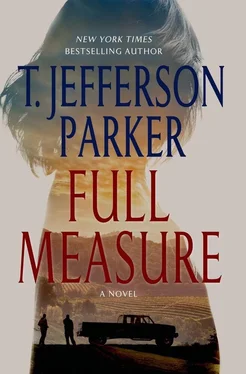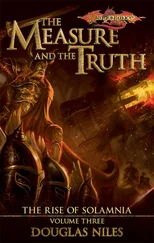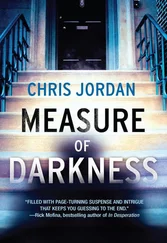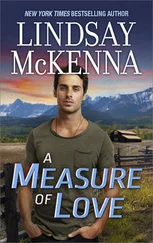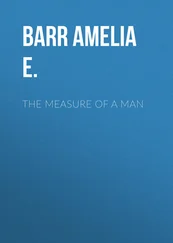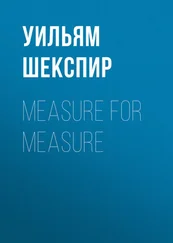“It all comes down to what home means,” said Patrick, startled by his lameness. He now felt required to say halfway intelligent things. “I mean, you know it when you see it, like you did. But I never had that. I never went to a place and knew it had to be mine. I got to see places too — mostly in the West. I liked it all. My favorite city was Missoula, no ocean but tons of rivers. My main thing was the fish. Besides the Pacific and any river that has fish in it, my favorite place was the Grand Canyon. And my favorite place in the Grand Canyon was halfway down it, where I could see up to the top and down to the bottom in one look. But I never thought of moving there.”
“They say it’s harder to stay than to go. I’m glad you stayed. I’m staying, too. I’ve got a trip to Kenton planned soon, and I already can’t wait to get back.”
She took his hand and Patrick felt a strange rush go through him. Not the terrible bone-freezing excitement of combat, but something warm and unrelated to self-preservation or death. It made him uneasy. He fished his phone from his pocket and showed her the pictures of the carburetor from Fatta the Lan’, before he’d refurbished it, broken it down in the bucket of solvent, then reassembled and put it back in place in the Mercury.
“Nice,” she said.
“And check these.” Next he showed her the fishing pictures of Ted and Glorietta Bay and the swells and the big snapper that had just about done them in. He wasn’t surprised how many fish pictures there were. “Sorry. I always take too many of the fish.”
“You’re proud.”
“That thing weighed twelve and a half pounds.”
“Was it good?”
“Oh, man, it was illegal good.”
He put the camera back and she took his hand again and again he felt that wholesale foreign rush go through him. Cruzela Storm sang a love song. When it was over Iris went to the kitchen and returned with a heavy red French oven. Patrick stood and when she leaned to set it on the table her honey hair fell forward and Patrick couldn’t take his eyes off the play of the candlelight on her extended arms, the bend of her body in the yellow dress. She wore padded mitts. She set the lid upside down on the table and steam roiled up from the pot. Iris stripped off the mitts, glancing at him. “Caught you looking.”
“I can’t not.”
She smiled and brushed her hair off her face. “Please kiss me.”
Patrick wasted no time on this direct order. It was a young couple’s kiss, awkward, then strong, then hungry. Patrick felt weirdly, blessedly anchored. Time passed. Without breaking the kiss he blindly tapped his fingers around the tabletop for a mitt and found one. He set the lid back on the pot with a sharp clank. “It’ll keep,” he said.
“I won’t.” She led him inside and across the hardwood floor and down the small hallway to her room. There it was dark except for a small lamp by the bed, and the room smelled clean and there was a window with nothing but hills and sky beyond it.
“I’m not super good at this yet,” he said.
“No worries. I’ve done it a million times.” They were both grinning when she turned off the lamp. “Now I’m the one just kidding.”
They undressed each other cautiously. Patrick released the backside bra hook with only minor struggle. Her whispers were warm in his ear and he got meanings but not words. He whispered back calmly, crazily ready, biting his tongue for painful distraction. Her bed was a foreign country, its surfaces and smells clearly no part of Patrick. The new nation welcomed him. Invasion. Surrender. Occupation. Oh, Iris. Nothing like this, ever. Window in wall, sky in window, stars in sky. Again and again, then sunrise.
She handed him a cup of coffee. “Never been this wrecked for work before,” she said, kissing him lightly on the lips. Sway of Iris, scent and dream-blur, out the door.
At ten o’clock that Thursday morning Cleo from Friendly Village Taxi called Ted to say that their semiregular fare, Lucinda Smith, would be ready for a ten thirty pickup. Ms. Smith had asked for “the big guy” if he was available. The image of Lucinda’s pretty, dour, sunglassed face came into focus in Ted’s mind’s eye like a close-up in a movie.
“I am available!”
He gunned the taxi. In the rearview he saw Mr. Hutchins’s hoary old head rock against the backseat. With only minutes to spare, he sped Mr. Hutchins to the board-and-care downtown to visit his wife, refused the man’s money, then sped over to CVS for breath mints. On impulse he picked up a TV/DVD combination from a display by the checkout line, with a sweet thirteen-inch screen and a remote — $99! Lucinda would love it.
Ten minutes later Ted pulled into a guest parking space across from her building and shut off the engine. Her condo was on a golf course outside of town. Beyond the condo he could see the course and one of the greens and a man striding toward a ball with a club in both hands. It was a warm day and there were wispy cirrus clouds high in the blue.
A moment later Lucinda stood amid the potted plants and flowers on her front porch, fiddling with her keys. The sunlight bounced off her shiny black hair. Down the steps she slowly came, sunglasses on, purse slung over a shoulder, reusable shopping bags wadded in one hand, her usual joylessness apparently in place. She wore jeans and a loose black T and flat black Chinese slippers. She climbed in and shut the door.
“Major Market, then Rosa’s.”
“You got it. I’m truly honored you asked for me.”
Ted backed into the quiet street. In the rearview he saw her looking at him — at the back of his head, anyway — through her blackout glasses. “I wish they hadn’t told you that.”
“Oh?”
“I asked for you because you hardly talk.”
“I’ll hardly talk all you want. Don’t worry. I’m just happy to have the work is all I meant.”
“If you say so.”
Ted put on his own sunglasses. He drove three wordless miles to Major Market and let her out at the entrance. “I’ll pick you up here.” She shut the car door and walked away. She moved like someone wishing not to be seen. She was inside, pulling a cart from the line when the automatic doors slid shut. What was devouring her? He felt it strongly but couldn’t identify it. It was something powerful, too, it felt like she’d left some of it right here in the cab. Anger? Fear? He often wondered if people sensed the same thing in himself. He parked in the shade where he could see her come from the store, resting his arm on the TV/DVD player box on the seat beside him.
She came out with a bag in each hand. Ted pulled up and stopped curbside, offering to handle the bags for her but she swung them into the backseat ahead of her and closed her own door. He pulled out of the lot and got onto Main, headed for Rosa’s Mexican restaurant.
“Keep going,” she said.
“What about Rosa’s?”
“Drive past the air park and the tennis club and turn at the high school.”
“Where are we going?”
“You weren’t going to talk.”
“But I need to have a destination.”
“Rosa’s.”
“We already drove past Rosa’s.”
“Please just drive.”
Ted followed Mission out of town, past the Econo Suites and the deli and the nature preserve at Los Jilgueros. “A jilguero is a goldfinch. Oops.” She was looking at the back of his head again.
“I was rude. You can talk if you have to.”
“What’s bothering you?”
She sighed and went quiet again. Ted thought he’d lost her. Why couldn’t he just keep quiet? Because the same forces that made him want to do something also made him want to say something, he thought. He turned on Stage Coach and drove by the high school and Duke Snider Field and Warrior Stadium. He came to the stretch of Stage Coach that the locals called “Holy Hill,” where many of the churches stood. The Baptist was Ted’s favorite because of the weekly aphorisms on its marquee. This week’s was a good one: WHERE WILL YOU BE SEATED FOR ETERNITY? SMOKING OR NON SMOKING? Ted imagined sinners writhing in flames. “I’ll probably end up in smoking,” he said.
Читать дальше
